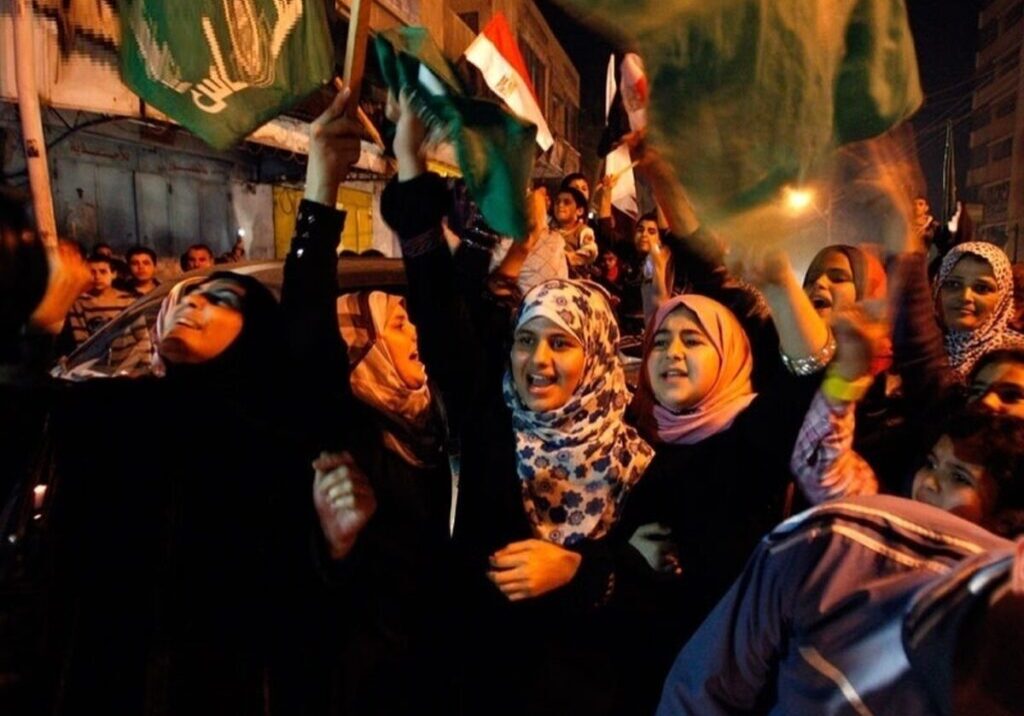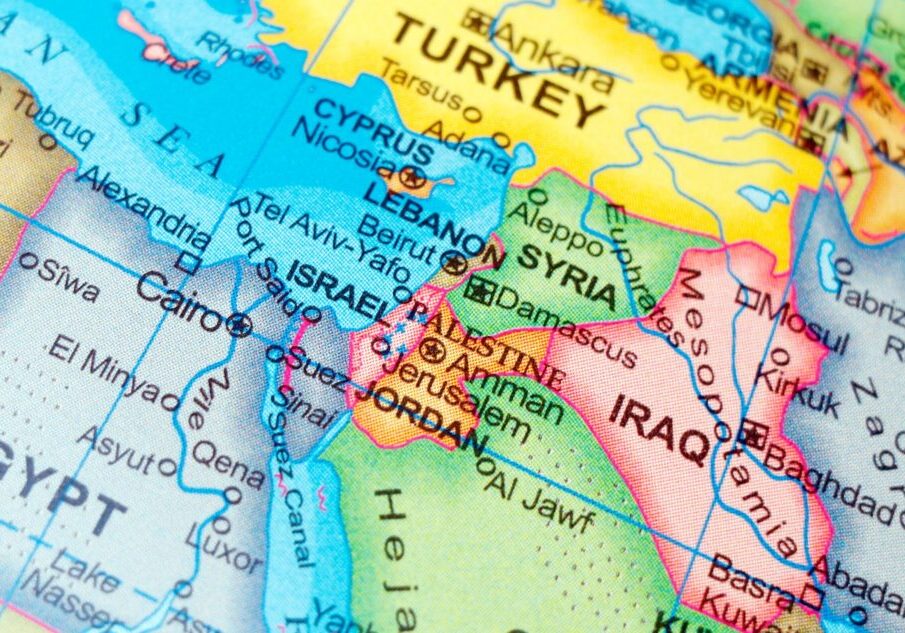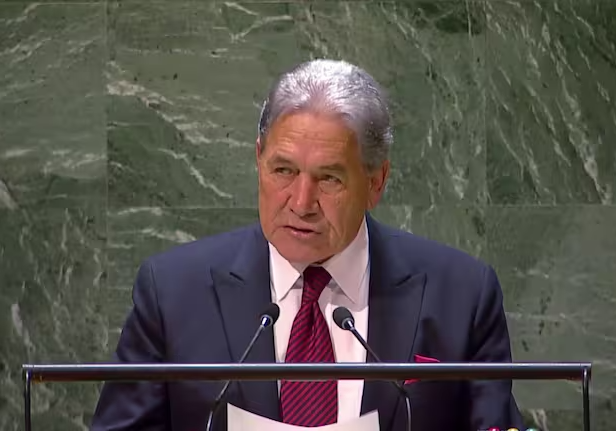Australia/Israel Review
Behind the News: In the Doc
Apr 3, 2006 | AIJAC staff
In the Doc
Recently translated documents found by American troops in post-Saddam Iraq have revealed extensive links between the former regime and a whole host of Iraqi and international terrorist organisations, including al-Qaeda and Abu Sayyaf in the Philippines.
Although only a tiny fraction of the estimated two million items found have been translated, it has already been revealed that an Iraqi official met with Osama bin Laden.
According to an intelligence document captured by American forces, Saddam Hussein personally approved of a meeting between an Iraqi official and the al-Qaeda leader in Sudan in 1995.
 |
| Abu Sayyaf: funding from Saddam |
The same document reveals that the Iraqi dictator was informed of the outcome of this meeting, and agreed to a “development of the relationship and cooperation between the two parties…based on dialogue and agreement on other ways of cooperation,” according to America’s ABC News.
Another document revealed that the former Iraqi dictator ordered a series of terrorist attacks to be carried out in London and Iran, in a 1999 operation dubbed ‘Blessed July’. A group consisting of 50 ‘martyrs’ was formed and directed to carry out bombings and assassinations of selected targets. The Iraqi Intelligence Service was instructed to provide logistical support.
Moreover, it is now known that Iraq financially supported the al-Qaeda-linked Philippine terrorist group Abu Sayyaf and held training camps for terrorists in its borders. Indeed, an Iraqi flyer aimed at recruiting fighters for Afghanistan listed one Musab al-Zarqawi as a contact. Al-Zarqawi now leads al-Qaeda in Iraq.
The Weekly Standard has reported that translated Iraqi communiqués from its embassy in Manila summarised recent actions by Abu Sayyaf, the Islamist terrorist group founded by Osama bin Laden’s brother-in-law in the late ‘90s, and indicate that the Iraqi regime was providing money to the group in order for it to buy arms.
Two other documents appear to show that the Russian ambassador to Iraq supplied Saddam with US troop numbers and likely troop movements on the eve of the outbreak of hostilities in 2003.
Dude, Where’s my Civil War?
Writing from Iraq for the New York Post on 5 and 14 March 2006 respectively, author and former US army intelligence officer Ralph Peters disputes a popular belief held by some notable correspondents and commentators – that Iraq is heading toward a civil war. “Instead of a civil war, something very different happened, because of the bombing of the Golden Mosque in Samara. The fanatic attempt to stir up Sunni-vs.-Shia strife, and the subsequent spate of violent attacks, caused popular support for the US presence to spike upward.”
Those calling for civil war, according to Peters, are “….foreign terrorists, such as Abu Musab al-Zarqawi, (who) have lost ground….Iraqis regard the foreigners as murderers, wreckers and blasphemers, and they want them gone. The Samara attack may, indeed, have been a tipping point-against the terrorists.”
Peters claims that there is misreporting of news from Iraq due to the fact that many of the correspondents rely too heavily on secondary sources. Their main source of information, according to Peters, comes from local Iraqi stringers who go “out and get the story, while the journalist stayed in his or her room.” He concludes, “Iraqi stringers, some of whom have their own political agendas, long ago figured out that Americans prefer bad news to good news.”
Peters’ claim gets some support from John Burns, the New York Times bureau chief in Baghdad. Burns recently admitted in USA Today, “Have we under-covered the good news? We probably have.”
The Walls of Jericho
Expensive Cuban cigars, servants, fine foods, books, mobile phones and computers were among the amenities enjoyed by the five convicted murderers of Israeli cabinet minister, Rehavam Zeevi, who were in a Jericho “prison” under international supervision, according to prison sources. They also had complete freedom to meet with anyone without supervision. The chief organiser of the Zeevi assassination, Secretary General of the Popular Front for the Liberation of Palestine (PFLP) Ahmed Saadat, was even allegedly able in 2004 to organise a terrorist attack on Tel Aviv’s Carmel market from inside the prison. These conditions were a blatant violation of the 2002 Ramallah agreement, negotiated to ensure that Zeevi’s murderers, and a sixth man, Fu’ad Shubbaki, responsible for an attempt to import Iranian weapons, would be jailed by the Palestinian Authority under British and American supervision.
However, it was the promise of the newly elected Hamas government to release the prisoners, with apparent assent from PA head Mahmoud Abbas, which finally prompted the British and American observers to threaten to leave the prison unless the Palestinians began to keep their end of the bargain.
Twenty minutes after the foreigners departed the compound on March 14, Israeli combat troops arrived with bulldozers, helicopters, tanks and armoured personnel carriers. After a tense stand off, all those inside the prison compound eventually surrendered to the Israeli forces and will now face trials in Israel. (This is despite repeated pledges by those inside to die fighting.) The storming of the prison compound sparked riots in the West Bank and Gaza, where westerners were targeted for kidnappings and British government buildings set on fire. Abbas called the Israeli storming of the prison an “unforgivable crime”.
Nevertheless, claims made by the US and UK consuls general in a joint letter to Abbas before the observers were withdrawn make it amply clear where the blame for the breakdown in the agreed arrangement had occurred. The consuls general wrote that “The Palestinian Authority has never fully complied with basic provisions of the agreement that established the US and UK Jericho monitoring mission…Furthermore, the Palestinian Authority has failed to provide secure conditions for the US and UK personnel working at the Jericho prison…”
British Prime Minister Tony Blair made similar statements during a question time in parliament, stating “For the past three months we have been warning the Palestinian Authority that the security of the monitors was at risk and the procedures at the particular detention centre were not adequate and proper…The breach has been because the proper detention procedures were not being observed on the Palestinian side.”
Not too late
Despite the widely heard argument that it is now too late to prosecute Nazi war criminals because of the passage of time, on March 27, a Lithuanian court convicted 85-year-old Algimantas Dailide of collaborating with Nazis in the murder of Jews. The Vilnius District court said Dailide, who was deported from the US in 2003 for lying about his war-time past, helped round up Jews for the Nazis as part of the Nazi-backed Vilnius security police during World War II.
The prosecution had asked for the minimum sentence of 5 years, but on the basis of the defendant’s age, the judge decided against any prison sentence.
Dailide is the third person to stand trial for aiding in the mass murder of Jews in Lithuania since 1991.
![]()
Tags: Asia






